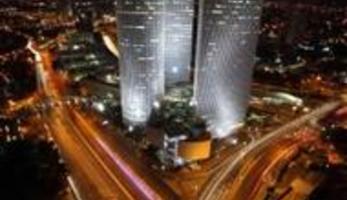Development of organisational and technical frameworks for facilitating an ongoing process for implementing goods logistics strategies
Thematic areas
Urban logistics
Summary
Efficient distribution of goods and services contributes not only to the city’s economic development but also improves the flow of traffic of all transportation modes, thereby reducing congestion and the negative environmental impacts of traffic. Development of organisational and technical frameworks for implementing goods logistics strategies is an important tool in achieving better logistical management of freight and goods.
Implementing sustainable mobility
The measure aimed at gaining a better understanding of freight movements within a designated area of the city centre. As the measure evolved it became increasingly clear that in order to pursue efficient goods logistics, a onetime effort should be replaced by a city wide, ongoing process based on broad cooperation among all the stakeholders concerned (city officials, businesses, distributors and suppliers).
The main objectives were: encouraging the involvement of logistics stakeholders and developing effective partnerships to achieve more sustainable freight movement; establishing a Logistics Forum; and identifying potential realistic freight best practice solutions.
Progress
The measure was adapted based both on the feedback regarding the organisational structure and the turnout at the public involvement meeting held in the demo area. The event was open to all the businesses and residents in the area but was mainly attended by distributors and suppliers. This adaptation reflected the insights gained: 1) that the measure needed to look at the city centre as a whole; and 2) that it is the supply chain that is most willing to work in partnership to develop more efficient goods logistics in the city through the establishment of a logistics forum.
The Logistics Forum met for the first time on 28 May 2015, with over 40 people attending. Around half of those attending were representatives of the major distributors, such as Coca Cola, Fed-Ex, UPS, Strauss Group, Wissotzky, Hogla-Kimberly and others.
The municipal departments represented included, among others, the strategic planning unit, the office of the city architect, licenses and permits, sanitation, and operations. The Forum met an additional five times during the measure’s lifetime with plans for more meetings in the future.
At the final meeting (during the measure lifetime) a satisfaction survey was carried out amongst the Forum participants. The general consensus from the survey results was that the Forum had created an excellent platform for airing the issues. Most of the respondents (~96%) answered to a great extent when asked whether the Forum had enabled them to raise the logistical problems they encountered. And again nearly all the respondents answered to a great extent (~90%) when asked if the Forum had contributed to the understanding of the issues surrounding urban logistics. Even the question regarding the effectiveness of the Forum for formulating logistical solutions received a very good response with again most of the respondents answering to a great extent (~80%). The non-municipality stakeholders did qualify this response stating that only time would really tell. Finally, when asked whether they were interested in the continuation of the Forum meetings most answered to a great extent (~80%), this seemed to be dependent on if the municipality implements any measures as a result of the Forum meetings to date.
Outcomes
- A logistics forum was successfully established with a high level of participation at all the Forum meetings held during the measure.
- The municipality gained valuable insight into goods logistics in the city.
- A roadmap of possible tools to tackle urban goods logistics problems was developed in collaboration with the Forum’s participants.







